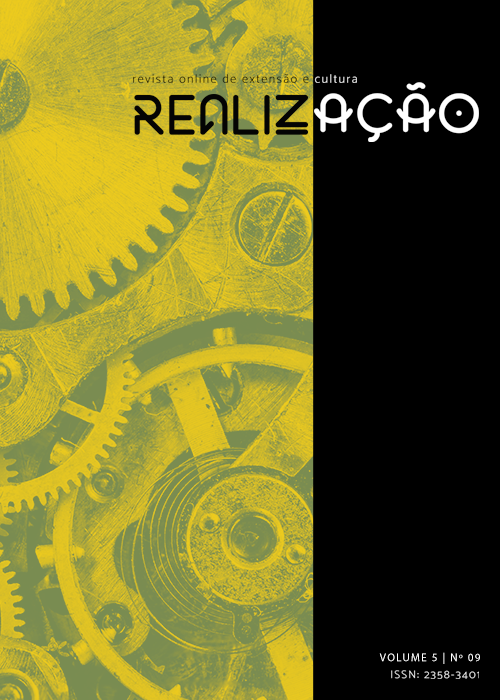Medicinal and productive backyards as an alternative for restoring the Cerrado
DOI:
https://doi.org/10.30612/re-ufgd.v5i9.8579Keywords:
Ecological balance , Flowers , NutrientsAbstract
The family farming model stands out for its ease and adaptation to the principles of organic and agroecological agriculture, especially due to the induction of ecological balance, recycling of nutrients, home-made inputs, soil conservation and control of pests and diseases in an ecological manner. In view of this, a group of farmers from the municipality of Sidrolândia-MS, after being settled in 2014, decided to start a soil maintenance work in the backyards of their properties, with the objective of recovering the soils degraded by human action, and consequently the local seed bank, transforming the spaces, turning them into productive and medicinal backyards, with native and exotic plants, starting in small spaces, with the idea of gradually occupying the entire property over the years. Among the results, it was worth noting that after six months of intervention, the backyards of the properties had flowers of different species, followed by fruit trees. The next step will be to implement the system in a larger area and on other properties, enabling other spaces to begin the restoration and income generation process.
Downloads
References
BELTRÃO, N.E.M. Agricultura orgânica e seu potencial como estratégia de produção. In: Simpósio Nacional Sobre as Culturas ao Inhame a do Taro. Anais. João Pessoa, 2002, p. 71-94.
BRITO, M.A.; COELHO, M.F.B. Os quintais agroflorestais em regiões tropicais unidades autossustentáveis. Revista Agricultura Tropical. v. 1, n. 4, p. 7-38. 2000.
EISENHAUR, N. Aboveground-belowground interactions as a source of complementarity effects in biodiversity experiments. Plant and Soil, Netherlands, v. 351, n.1-2, p.1-22, fev. 2012.
FERREIRA, A.B.H. Dicionário Aurélio. 5 eds. São Paulo: Editora Positivo. 2292 p. 2010.
HASHEM, M.; ABO-ELYOUSR, K.A. Management of the root-knot nematode Meloidogyne incognita on tomato with combinations of different biocontrol organisms. Crop Protection, v. 30, n. 3, p. 285 - 292, mar. 2011.
KORANDA, M.; SCHNECKER, J.; KAISER, C.; FUCHSLUEGER, L.; KITZLER, B.; STANGE, C.F.; SESSITSCH, A.; ZECHMEISTER-BOLTENSTERN, S.; RICHTER, A. Microbial processes and community composition in the rhizosphere of European beech – The influence of plant C exudates. Soil Biology & Biochemistry, v. 43, n. 3, p. 551 - 558, mar. 2011.
MDA- MINISTÉRIO DO DESENVOLVIMENTO AGRÁRIO. O encontro da Agricultura Familiar com a Alimentação Escolar, 2011. Disponível em file:///C:/Users/vivip/Desktop/trabalhos%20enegea%20corrigidos/cartilha_o_encontro_da_af_e_ae_ed_2011.pdf.
PASA, M.C.; SOARES, J.N.; GUARIM-NETO, G. Estudo etnobotânico na comunidade de Conceição-Açu (altoda bacia do rio Aricá Açu, MT, Brasil). Acta Botânica Brasílica, v.17, n.19, p.195-207, 2005.
SCHLACHTA, M.H. O MST e a Questão Ambiental: uma cultura política em movimento (Dissertação de mestrado). Recuperada de TEDE., 2008. (http://tede.unioeste.br/tede/tde_busca/arquivo.php?codArquivo=334)
ZABIHI, H.R.; SAVAGHEBI, K.; KHAVAZI, A.; GANJALI, M.; MIRANSARI, M. Pseudomonas bacteria and phosphorous fertilization, affecting wheat (Triticum aestivum L.) yield and Puptake under greenhouse and field conditions. Acta Phisiologia e Plantarum, v.33, n.1, p.145-152, jan. 2011.
ZAMBERLAN, J.; FRONCHETI, A. Preservação do pequeno agricultor e o meio ambiente. Petrópolis: Vozes, 2001.
Downloads
Published
How to Cite
Issue
Section
License
Copyright (c) 2018 Roberta Fernanda Ribeiro Aragão, Lucas Wagner Ribeiro Aragão, Valdeci José Pestana, Edineia Messias Martins Bartieres, Viviane Mallmann

This work is licensed under a Creative Commons Attribution-NonCommercial-ShareAlike 4.0 International License.
Autores que publicam nesta revista aceitam as normas de publicação, bem como, concordam com os seguintes termos:
(a) O Conselho Editorial se reserva ao direito de efetuar, nos originais, alterações da Língua portuguesa para se manter o padrão culto da língua, respeitando, porém, o estilo dos autores.
(b) Autores mantêm os direitos autorais e concedem à revista o direito de primeira publicação, com o trabalho simultaneamente licenciado sob a Creative Commons Atribuição-NãoComercial-CompartilhaIgual 4.0 Internacional que permite: Compartilhar — copiar e redistribuir o material em qualquer suporte ou formato e Adaptar — remixar, transformar, e criar a partir do material. A Creative Commons Atribuição-NãoComercial-CompartilhaIgual 4.0 Internacional considera os termos seguintes:
- Atribuição — Você deve dar o crédito apropriado, prover um link para a licença e indicar se mudanças foram feitas. Você deve fazê-lo em qualquer circunstância razoável, mas de nenhuma maneira que sugira que o licenciante apoia você ou o seu uso.
- NãoComercial — Você não pode usar o material para fins comerciais.
- CompartilhaIgual — Se você remixar, transformar, ou criar a partir do material, tem de distribuir as suas contribuições sob a mesma licença que o original.
- Sem restrições adicionais — Você não pode aplicar termos jurídicos ou medidas de caráter tecnológico que restrinjam legalmente outros de fazerem algo que a licença permita.


